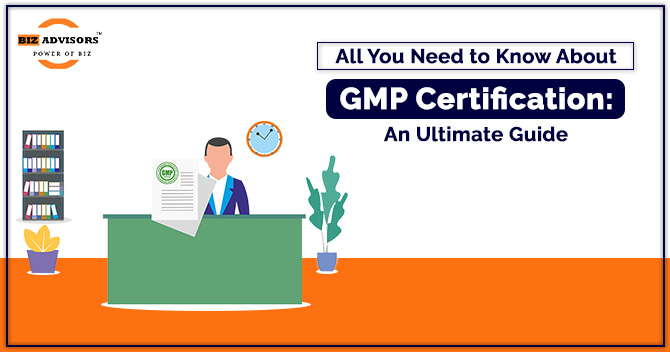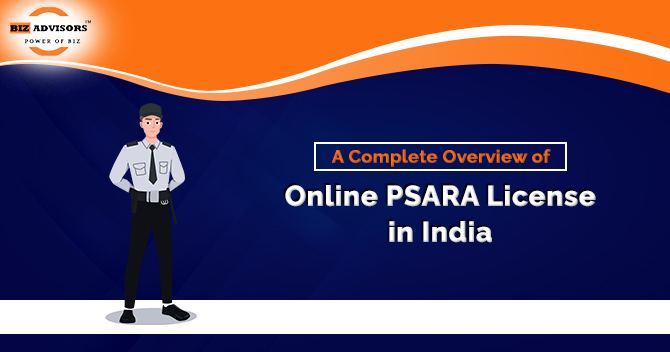Good Manufacturing Practice (GMP) Certification imparts a standardized network of manufacturing processes, which are being undertaken under large production units and factories. GMP Certification comprehensively determines the quality standards of manufacturing sources in a well-organized format. It helps in forming a substratum for robust industrial units and factory systems. GMP Certification also helps in maintaining the integrity of the manufacturing processors by providing an efficacious model of production material in a sophisticated form. Therefore, every proprietor of manufacturing units must hold a GMP Certification for legal validation and to avoid any kind of legal problems in the future. As this Certification can be defined as one of the best ways to accelerate the manufacturing unit’s social identity and substantively increase the market value of the manufacturing units in a definite perspective. In this blog post, you will learn about the basics concerning the Good Manufacturing Practice Certification in a detailed format.
Good Manufacturing Practice (GMP) Certification
Good Manufacturing Practice, or GMP, is the abbreviation used throughout the world to describe how pharmaceutical items are manufactured, tested, and generally of high quality. It outlines specific regulations that discuss the quality assurance strategy. Products are created by the standards for quality, according to GMP certification.
The Commissioner of the Food and Drug Administration has given Joint Commissioner the authority to sign and issue certifications under the WHO-GMP certification program. Good Manufacturing Practice Certification covers matters like record keeping, sanitation, cleanliness, equipment verification, management of complaints, and process validation
It also deals with concerns like people qualifications, sanitation, and equipment verification. The requirements set forth by GMP are not unusual in any way; rather, they are flexible and simple to implement, and they give manufacturers the freedom to choose how best to implement the required controls.
Advantages of GMP Certification
Each manufacturer of pharmaceuticals and medical equipment complies with GMP regulations; however, some have developed standards that match local laws.
The following are the advantages of obtaining a GMP Certification:-
• Educate and encourage certification holders to choose quality creation
• Identifying manufacturing and management concerns promptly
• The observance of crucial regulations and legislation
• Reducing the risk of product quality and safety issues
• Improving overall trustworthiness and public perception
• Increases the trust in your products among consumers
• Aids in reducing operating expenses associated with rework and fines for non-compliance
• Increases the potential for exports
• Cost savings
• Decreased inspection duplication
Advantages to the Manufacturer
Improvements in quality systems and conformity with standards at the manufacturing are the primary strengths. These developments were evident in the months before GMP certification and persisted in the years right after GMP certification.
Advantages to the Customer
When a manufacturer has received GMP certification, customers usually modify the way they monitor them. Consumers are aware that to be certified, a manufacturer must have mechanisms in place and present proof that non-conformance and modifications that call for customer notification are managed appropriately. This guarantee is often not acquired by pharmaceutical companies through a one-day supplier audit; rather, it is acquired as a consequence of extensive, multi-day inspections of manufacturers as part of a certification evaluation process.
Essential Documentation concerning GMP Certification
Following are the significant documents in the context of obtaining a GMP Certification:-
• Name of the applicant along with contact information, such as phone, fax, and email
• A replica of the manufacturing license
• A list of the products that have been authorized
• A file called Site Master (as specified under WHO TRS 823).
• Statistics on the final formulation:
1) Master production equation and manufacturing method
2) Specifications for the finished product and the analysis method
3) Stability survey assessment (amplified and legitimate) for three variants, including batch size, batch number, date of manufacture, and expiration date;
4) Three batches of process validation data.
5) An analysis of the validation report.
• List of technical personnel, including information regarding their education, work history, and status regarding approval
• A list of the tools and apparatus
• STP and SOP list
• Plan a manufacturing facility
• Water system layout depicting the circulation loop and MOC
• Product datasheet (as per Format B)
• As to Rule 158B of the 1945 Drugs & Cosmetic Regulations[1], evidence of safety and efficacy must be provided.
• Commitment to follow domestic legislation, including the Medicines & Cosmetics Act, of 1940, and Regulations there under, the Pharmaceuticals & Mystical Remedies (Objectionable Advertisements) Act, of 1954, and Rules there under, etc.
Procedure of Good Manufacturing Practice Certification
Following is the procedure concerning GMP Certification:-
Application
This is the first stage in obtaining the GMP certification, and the application includes certain crucial information about the enterprise. The affirmation body must agree that it is appropriate and necessary to enter or maintain all of the data in the GMP database.
Application Review
To ensure that the consistency requirement has been met, the group will review the application.
Evaluation & Consensus
Give the Gap Analysis the value citation following the document audit to cover all the conditions and sections of the quality guidelines. The Gap Analysis is carried out to examine the discrepancy between the planned and completed actions of organizations.
Review of the Documentation
Verify the organization’s documentation to make sure it satisfies the requirement for compliance.
Stage-1
• Audit- Compare the consistency requirement to your association’s documented approach and strategies.
• Survey- Then, check the documentation for your administrative structure to make sure the requirements for consistency have been established.
• Restoration work- Non-similarity is to be used to manage corrective action. When noncompliance occurs, it requires action to be taken.
• Check- Check the establishment’s documentation to make sure it meets the requirements.
Stage-2
· Audit- The inspector verifies that the organization is operating as stated in its documentation, the authoritative body’s examiner identifies non-compliances, and finally, the reviewer provides an opportunity for the non-compliance to be corrected. Review the execution process following the association’s report.
· Restoration of Damage- Corrective action must be taken if there is any deviation from the norm.
· Check- Check the work instructions, followed by the execution procedure that is being monitored by your representatives.
· Certification Awarded- A certificate of compliance will be issued by the Certification Agency, which is significant for a long time.
· Monitoring Audit- Verifying that the association complies with the requirements of the administrative framework is the outcome of a surveillance review. After the certificate is issued, an observation assessment must be conducted every six months or one year.
Conclusion
The aforementioned text delineates an unambiguous picture concerning GMP Certification. GMP Certification adjoins the structural framework of manufacturing processes with the ideal pattern of law. It acts as a shield against the illegal utilization or employment of manufacturing materials on a broad scale. GMP Certification provides a well-developed network of quality sources in the context of manufacturing material capacity. It helps in standardizing and amplifying the potential of manufacturing enterprises by providing quality confirmation adherence to the protocols of systematic adjunction of manufacturing. Our legal luminaries at BizAdvisors.io provide a robust support system to assist individuals to obtain a GMP Certification quickly. You can freely contact our legal experts at BizAdvisors.io for any kind of professional advice or support in the context of the structural framework of GMP Certification.
Read our article:How to Obtain Drug License in India: A Complete Process
 9559179325
9559179325 9559179325
9559179325





